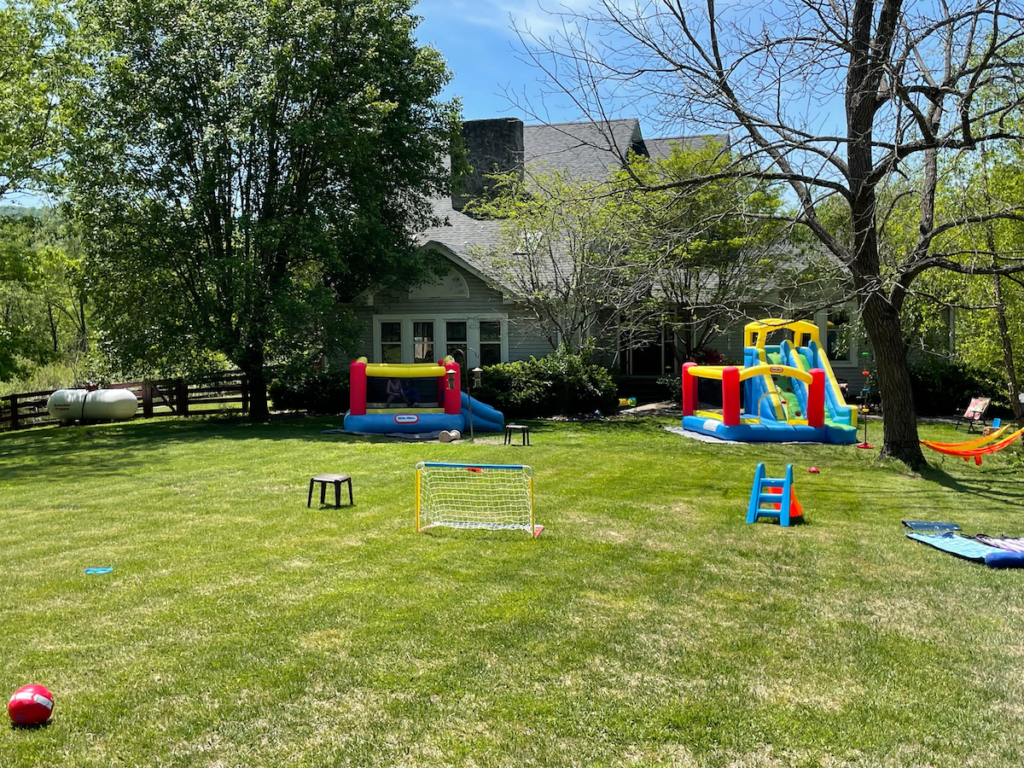For a man’s house is his castle, et domus sua cuique est tutissimum refugium [and each man’s home is his safest refuge].
This quote comes from 17th-century English jurist Sir Edward Coke. Coke used it to emphasize the importance of individual rights and the sanctity of one’s home in English common law.
This concept had a strong influence Thomas Jefferson at the American founding.
Jefferson looked at the vast, untamed land on this continent, and he saw a tremendous opportunity. Why couldn’t everybody own a small plot of land and be kings and queens of their own castle, he thought.
This may sound like a simple thing. But it ran in stark contrast to what Jefferson saw happening across Europe.
Rapid urbanization was pushing people into the major European cities at the time. Jefferson feared this would lead to corruption on the part of those cities… and a complete dependence on wage labor on the part of their citizens. And Jefferson felt that this dependence would diminish moral values and the sense of civic responsibility.
This formed what we call Jefferson’s “agrarian vision” for America. He envisioned a society comprised of small, independent communities that would spring up around small farms.
In Jefferson’s vision, Americans would be economically independent. And their communities would be self-sustaining. Jefferson believed this would foster strong values and a commitment to good stewardship.
I thought about this over the weekend as we were setting up for a little gathering at our home.
Spring is upon us up here in the Virginia highlands. Acres of green blanket the majestic mountains that surround us. The flowers are now in full bloom. And the new strawberry sprouts are beginning to break through the garden soil.
As such, we felt the urge to host a little Spring Fling. We wanted to take the opportunity to bring people together. Especially the kids.
At the height, we had thirteen kids running around. And they weren’t disappointed:
Here’s a look at our set-up.
We had two bounce houses, a couple hammocks and various other yard toys laid out for the kids. This kept them outside playing until nightfall – something that’s rare for kids today.
With the kids well-entertained, the parents were afforded time to relax and enjoy adult conversation. That’s a luxury for those of us with younger children.
And we catered our little event with sandwiches from the local meat market. They go out of their way to source meat from our local farmers whenever possible.
That’s what got me thinking about Jefferson’s agrarian vision.
It didn’t play out on the macro scale, of course. America morphed into the urbanized United States that we know today. But there are still plenty of small pockets in this country where Jefferson’s vision has become a reality.
When I think about this kind of thing, I can’t help but feel a direct link to the past.
Those of us in developed countries are blessed to live in a world of abundance. Most of us probably take this for granted. But we shouldn’t.
We owe those who came before us an immense debt of gratitude for the foundation they left us with. At the same time, I think we have a responsibility to leave our kids and grandkids with a strong foundation as well.
I think this requires us to have a firm grasp on the foundational ideas and principles that underpin our civilization. And in my experience, these things are notoriously missing from both high school and college textbooks.
Fortunately, there is a great solution. It’s called Tom Woods’ Liberty Classroom.
This program features 33 video-based courses taught by some knowledgeable and passionate people. Several of them are professors at small private colleges.
Liberty Classroom features basic history courses on both western civilization and American history. There are also courses on the culture of the early American republic as well as the early days of the western frontier.
Then there are courses on “freedom’s progress”. This is the history of political thought in the western world. There are several fascinating courses on mythology and science fiction as well… as they pertain to the development of western civilization, that is.
And finally, Liberty Classroom features quite a few courses on free market economics. That is to say, real economics. Not the hypothetical economics taught in all but a handful of American universities today.
Put it all together and this is the education I wish I had received in high school and college.
And it’s about more than just personal development.
This material provides a solid foundation for understanding the modern world. That includes the ability to parse through biased information to identify incentives. If you can find the incentives, you can get much closer to the truth.
So I can’t say enough good things about this program.
If you would like to give Liberty Classroom a look and browse its course offerings, just go here:

One thought on “Kings and Queens of Our Own Castle”
Comments are closed.